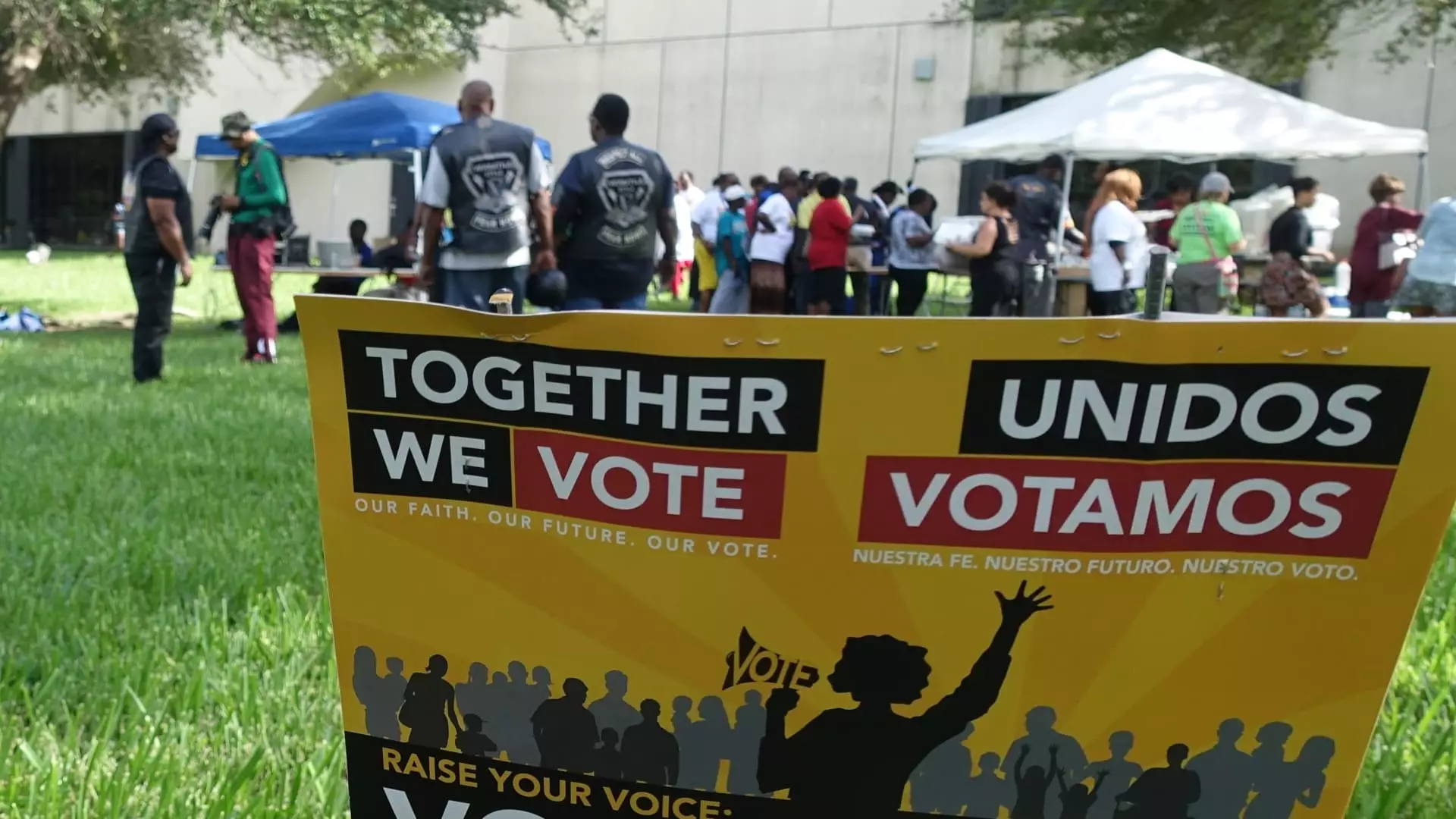The landscape of American electoral politics is ever-evolving, especially as demographic shifts play an increasingly pivotal role in shaping election outcomes. Now more than ever, campaigns are focusing their efforts on mobilizing various voter blocs, with the Latino community emerging as a critical demographic in key battleground states. In a strategic move as Hispanic Heritage Month begins, Vice President Kamala Harris’s campaign is amplifying its outreach initiatives aimed at Latino voters. This article will delve into the multifaceted strategy being employed, highlighting the significance of cultural engagement, media investment, and community connections.
As the Harris campaign rolls out its largest outreach effort thus far, it is cognizant of the cultural essence that resonates within Latino communities. Sports, notably boxing and baseball, serve as powerful platforms for engagement. By organizing events around high-profile matches, such as the Canelo Alvarez and Edgar Berlanga fight in Las Vegas, the campaign strategically places itself where Latino support is most vibrant.
Moreover, leveraging local cultural celebrations and gatherings, like the upcoming Mexican Independence Day, underscores the campaign’s intention to blend political messaging with culturally relevant activities. Events planned at churches and community centers aim not just to mobilize votes, but also to nurture a sense of shared identity and heritage among attendees. This approach stands out as a positive reinforcement of community ties that can enhance voter turnout.
In a historical commitment to reaching Latino populations, the Harris campaign announced an impressive $3 million investment dedicated to Spanish-language radio ads during Hispanic Heritage Month. This financial commitment represents one of the most substantial expenditures in Hispanic media within the context of a political campaign. The focus on Spanish-language platforms reflects an understanding that traditional media often overlooks the genuine needs and voices of Latino voters.
Targeted ad placements across local radio stations, especially those that cater to sports audiences, demonstrate a tactical insight into where Latino voters consume their information. This approach not only addresses the language barrier but also ensures that messaging resonates with diverse communities, particularly when discussions center around shared experiences, values, and ongoing challenges in their respective regions.
Another cornerstone of the outreach strategy involves empowering “trusted messengers” within Latino communities. The campaign recognizes the role of personal networks and familial ties in shaping political opinions. By amplifying voices from within the community, the Harris campaign seeks to counteract a pervasive culture of misinformation, particularly prevalent across social media platforms.
The creation of a “Latinos con Harris-Walz” WhatsApp channel is a noteworthy initiative, addressing the need for accurate information dissemination among voters. By fostering a digital platform for conversation and information sharing, the campaign hopes to cultivate a well-informed electorate that recognizes the stakes of the upcoming election.
Recent polls indicate that Vice President Harris is more popular among Spanish-speaking and bilingual households than in English-speaking ones. This insight is vital for the campaign, highlighting a disparity that could sway electoral decisions. The data suggests that approximately 60% of Latino voters from Spanish-speaking households favor Harris, while there’s a noticeable drop in support from those in English-dominant environments.
Understanding these nuances enables the campaign to develop tailored messaging and outreach efforts that resonate with various segments of the Latino population. Engaging communities on their terms, culturally and linguistically, is not just a strategy to garner votes but a recognition of the complex identities within the Latino electorate.
As Election Day approaches, the urgency for the Harris campaign to consolidate support from Latino voters becomes paramount. This demographic’s vote is not merely symbolic; it is essential for contesting and prevailing against a resurgent Republican landscape that includes powerful figures like Donald Trump. The threats posed by Trump’s policies, perceived anti-Latino sentiments, and economic messaging pose challenges that the Harris team is intent on addressing through this comprehensive outreach.
The Harris campaign is making a concerted effort to ensure that Latino voters feel seen and heard. By fostering engagement through culture, committing significant resources to Hispanic media, empowering community voices, and responding strategically to polling insights, the campaign aims to navigate the complex political terrain of 2024 effectively. Winning the hearts and minds of Latino voters will not only bolster the campaign but also reflect the changing dynamics of American society and its electoral processes.


Leave a Reply